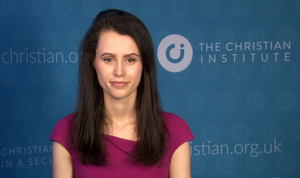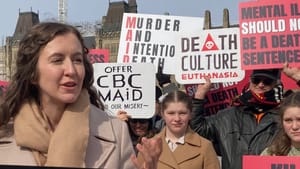Los Angeles, the ‘City of angels’, was host to the 26th Annual Meeting of the North American Presbyterian and Reformed Council during 14-15 November 2000. NAPARC, as it is known, is a delegated gathering of conservative Calvinistic confessional churches.
The meeting was hosted by the KAPC in that part of LA called Koreatown. This is home to 600,000 Koreans, served by 1,000 churches and 4,000 ordained ministers.
The drive from the airport revealed a city with churches on virtually every block, covering a marvellous array of ethnic communities. All this within sight of the great ‘Hollywood’ sign that symbolises much that is amiss in modern culture. The Lord’s arm is not shortened that it cannot save!
Delegations
Member churches are the Associate Reformed Presbyterian Church (ARP with 35,000 members); the Christian Reformed Church (CRC, 320,000); Korean American Presbyterian Church (KAPC, 35,000); the Orthodox Presbyterian Church (OPC, 24,000); the Presbyterian Church of America (PCA, 240,000); the Reformed Church in the US (RCUS, 4,400); and the Reformed Presbyterian Church of N. America (RPCNA, 6,200).
British readers may like to know that two of the seven delegations were headed by men from the UK: Welshman, Irfon Hughes (PCA) and Scotsman, Gordon Keddie (RPCNA), who has contributed several volumes to EP’s Welwyn Commentary Series. The Reformed family truly spans the globe.
Observers were also present from the Free Reformed Churches (FRCNA, with 3,500 members) and the United Reformed Churches (URCNA, 17,000). The latter seceded from the CRC over the ordination of women to the ministry. CRC is under suspension from NAPARC and faces expulsion in the near future.
Each church reported on developments over the past year, most showing definite growth. The general feeling was one of thankfulness for tokens of the Lord’s blessing.

Distinctives
There were two principal items of business. The first involved presentations from each denomination, focusing on their distinctive beliefs and practices. The object was to clarify a framework for achieving organic union of member churches.
A three-man committee will collate the findings and prepare the groundwork for future steps toward unity. The ARP, KAPC, OPC, PCA and RPC hold to the (British) Westminster Standards, while the CRC and RCUS hold to the (Continental) ‘Three Forms of Unity’ (Belgic Confession, Heidelberg Catechism and Canons of Dordt).
The smaller churches have tighter views on matters such as exclusive psalmody (RPC), exclusive male/head of family voting, and confessional membership (RCUS).
There are also cultural differences. Brian Lee of the KAPC reported on the sensitive matter of the use of English in a 22-year-old denomination dominated by first-generation Korean immigrants.
Humanly speaking, the challenges to a broad-based union are great, but everyone present agreed that nothing is too hard for the Lord.
Divergences
The second major matter was a motion from the PCA calling for the expulsion of the CRC. Voting was delayed for 12 months, to permit the PCA to present formal grounds for this action, and to allow time for responses.
The motion was triggered by the 1995 decision by CRC to open all ecclesiastical offices to women. OPC point out that this contradicts an explicit provision of the Belgic Confession and rests on an unbiblical hermeneutic (CRC had declared that both opposing views on the subject were warranted by Scripture).
Impassioned pleas to drop the motion, from veteran CRC conservative Peter Brouwer, and the more liberal General Secretary, David Engelhard, fell on deaf ears.
Difficulties
The underlying question for NAPARC concerns the reason for its existence. Membership issues have dominated recent meetings. The admittance of the RCUS had been opposed by the two largest denominations, and the CRC problem had arisen.
These difficulties have had a dampening effect on the positive work of the Council. The hope must be that the 20 or so Reformed denominations classed as ‘observers’ will be moved to join, and so transform NAPARC into a forum for those Reformed churches that remain faithful to Scripture and the Confessions.
This could engender a revival of the Study Conferences held in earlier years, and give fresh impetus to the Home and Foreign Mission Consultations that meet separately on an annual basis.






















